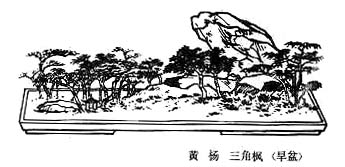中
庸
Zhongyong  – The Doctrine of the Mean
– The Doctrine of the Mean
Confucius' grandson comments about the Way and human nature. Tr. Legge (en)
Table of content
I. "The sum of the whole work"
II. Only the superior man can follow the Mean; the mean man is always violating it.
III. The rarity, long existing in Confucius's time, of the practice of the Mean.
IV. How it was that few were able to practice the Mean.
V. "The Path of the Mean is untrodden"
VI. How Shun pursued the course of the Mean.
VII. Their contrary conduct shows men's ignorance of the course and nature of the Mean.
VIII. How Hûi held fast the course of the Mean.
IX. The difficulty of attaining to the course of the Mean.
X. On energy in its relation to the Mean.
XI. Only the sage man can come up to the requirements of the Mean.
XII. The course of the Mean reaches far and wide, but yet is secret.
XV. In the practice of the Mean there is an orderly advance from step to step.
XVI. An illustration, from the operation and influence of spiritual beings, of the way of the Mean.
XVIII. On king Wan, king Wû and the duke of Châu.
XIX. The far-reaching filial piety of king Wû, and of the duke of Châu.
XXI. The reciprocal connection of sincerity and intelligence.
XXII. The results of sincerity; and how the possessor of it forms a ternion with Heaven and Earth.
XXIII. The way of man;– the development of perfect sincerity in those not naturally possessed of it.
XXIV. That entire sincerity can foreknow.
XXV. How from sincerity comes self-completion, and the completion of others and of things.
XXVII. The glorious path of the Sage; and how the superior man endeavors to attain to it.
XXVIII. An illustration of the sentence in the last chapter– "In a low situation he is not insubordinate."
XXXI. The eulogium on Confucius continued.
XXXII. The eulogium of Confucius concluded.
XXXIII. The commencement and the completion of a virtuous course.

The Doctrine of the Mean – Zhongyong (table) – Chinese on/off – Français/English
Alias Zhong Yong, Chung Yung, Tchong Yong, The Unwobbling Pivot (Pound), La Régulation à usage ordinaire (Jullien).
The Book of Odes, The Analects, Great Learning, Doctrine of the Mean, Three-characters book, The Book of Changes, The Way and its Power, 300 Tang Poems, The Art of War, Thirty-Six Strategies
Welcome, help, notes, introduction, table.
Index – Contact – Top
